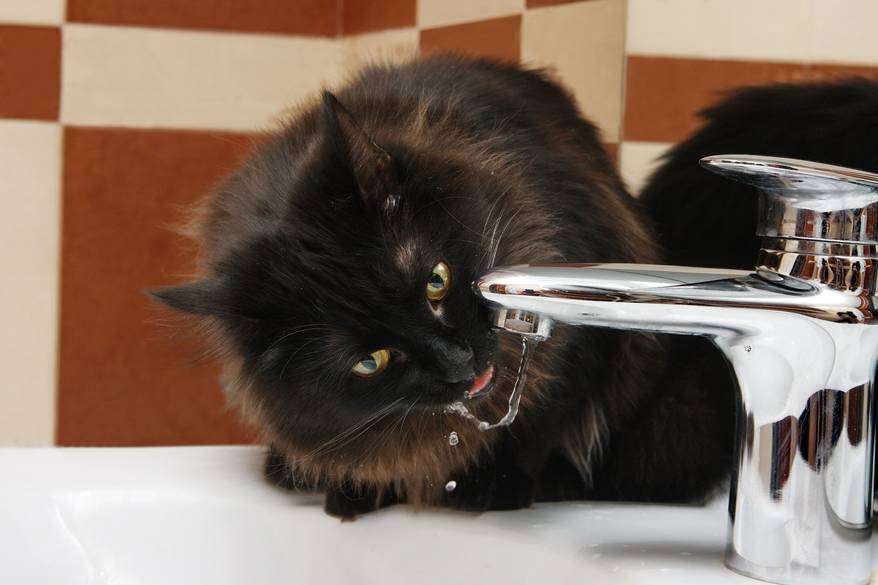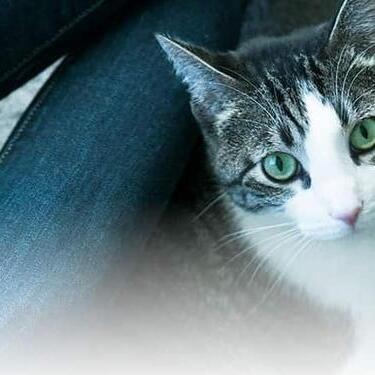
-
Find the right food for your pet
Take this quiz to see which food may be the best for your furry friend.
Find the right food for your pet
Take this quiz to see which food may be the best for your furry friend.
Featured products
 Small & Mini Savory Stew with Chicken & Vegetables Dog Food
Small & Mini Savory Stew with Chicken & Vegetables Dog FoodA delicious complement to the nutrition of Science Diet Small & Mini 7+ dog food
Shop Now Adult 7+ Perfect Digestion Chicken, Whole Oats & Brown Rice Recipe Dog Food
Adult 7+ Perfect Digestion Chicken, Whole Oats & Brown Rice Recipe Dog FoodScience Diet's breakthrough nutrition supports ultimate digestive well-being & healthy microbiome for dogs age 7+
Shop Now Adult Healthy Cuisine Roasted Chicken, Carrots & Spinach Stew Dog Food
Adult Healthy Cuisine Roasted Chicken, Carrots & Spinach Stew Dog FoodDelicious roasted chicken paired with tender vegetables in a succulent stew
Shop NowFeatured products
 Adult Savory Entrée Can Variety Pack Cat Food
Adult Savory Entrée Can Variety Pack Cat FoodPrecisely balanced nutrition with the delicious taste of savory minced chicken to help fuel the energy needs of cats during the prime of their life
Shop Now Adult 7+ Tender Tuna Dinner Cat Food
Adult 7+ Tender Tuna Dinner Cat FoodWith delicious chunks in a decadent gravy
Shop Now Adult 7+ Senior Vitality Chicken & Vegetable Stew Cat Food
Adult 7+ Senior Vitality Chicken & Vegetable Stew Cat FoodImproves Everyday Ability to Get Up & Go
Shop Now -
Dog
- Dog Tips & Articles
-
Health Category
- Weight
- Food & Environmental Sensitivities
- Urinary
- Digestive
- Joint
- Kidney
-
Life Stage
- Puppy Nutrition
- Adult Nutrition
- Senior Nutrition
Cat
- Cat Tips & Articles
-
Health Category
- Weight
- Skin & Food Sensitivities
- Urinary
- Digestive
- Kidney
-
Life Stage
- Kitten Nutrition
- Adult Nutrition
Featured articles
 Does My Pet Hate Me?
Does My Pet Hate Me?Learn tips for bonding with your pet if you've ever thought, 'My dog doesn't like me, or 'Why do I have a standoffish cat?'
Read More Why Are Dogs and Cats So Cute?
Why Are Dogs and Cats So Cute?If waggy puppy dog tails and furry kitten yawns make you swoon, you're not alone. Why are cats so cute? And, dogs too! Let's find out!
Read More Do Dogs and Cats have Belly Buttons?
Do Dogs and Cats have Belly Buttons?Learn whether cats & dogs have belly buttons like humans, what the function is, and if there are any health concerns associated with it.
Read More -


It's a long-held belief that cats and water don't mix, but is it true? If it is, why do cats hate water so much? When it comes to understanding why many cats don't like water, it's important to separate fact from fiction. Not every kitty hates showers, and certain breeds even love to swim.

Cats and Water: A Tepid Relationship
Many cats have an aversion to water, but the exact reasons why continue to elude experts.
The Canadian Veterinary Medical Association (CVMA) theorizes, "One reason for the aversion may have something to do with the fact that the feline species evolved in arid desert climates. Throughout their early history, cats were not exposed to rivers, lakes and rain and as a result were not as familiar with water as some other evolving species." Unlike dogs, who love to frolic in the water and in some instances are even trained to work in it, most kitties aren't fans of getting wet.
A second often-cited reason is related to your furry friend's preference for a meticulous coat. If you've ever been stuck in the rain without an umbrella, you well know that wet hair is notoriously difficult to manage, and that doesn't sit well with cats. A drenched coat weighs down your kitty, making her uncomfortable, and it can take a long time for the coat to dry. Cats, ever-diligent with their personal hygiene routine, spend about a third of their waking hours grooming, notes the CVMA. A sopping-wet coat makes their job very difficult.
Splish Splash: Taking a Cat Bath
Why doesn't your cat like water? Petful offers another answer, noting "Cats are also sensitive to odors, and it is speculated that your cat may not like the scent of chemicals from tap water." The situation gets even more overstimulating if you factor in shampoos full of unfamiliar smells.
Don't be deterred, however, from giving your cat a bath if she needs it. You can do it if you have the right tools and techniques. Items to have on hand include towels, vinyl gloves, a gentle cleanser and after-bath treats. Your greatest tub-time help, however, is a trusted friend or family member who will be patient with you and your possibly unruly kitty. Your cat's meticulous grooming skills ensure that she won't need a bath often, but if she gets herself into a dirty or smelly mess, it's good to know the tips and tricks of the trade.


Tasty Tips
Chasing Waterfalls
As a pet parent, you may notice that while your fur baby may dislike being wet, she loves to play with water. Whether it's lapping up drips of water from the bathroom faucet, drinking from a pet fountain (a great option if your cat needs to drink more water), or trying to stick a paw into your running shower, she's all about the fun and games of moving water (as long as she doesn't get too wet).
Experts theorize that a cat's predilection for running water (like your kitchen sink) over still water (like a bathtub) is a matter of playful fascination. Dripping water "is a cat magnet," says Animal Planet, providing an exploration of the senses. It's also possible that her instincts associate running water with fresher streams that would be safer to drink in the wild than a still puddle.
Swimming Cats
Although most domestic cats don't like water, their wild cousins, such as tigers, happily use it to cool off or hunt their next meal. There are also a few breeds of household kitties, including the Maine coon, Bengal and Abyssinian, that love the water and occasionally enjoy a few laps around the pool.
The cat most known for her skills in the water is the Turkish van, a rare breed that has been nicknamed the "Swimming Cat." According to The International Cat Association, these cats "have a unique texture to their cashmere-like coats that makes them waterproof which lets them enjoy swimming and other water games." With a built-in wetsuit, the Turkish van can paddle around as much as she likes.
So why do cats hate water? Well, yours might not. When you welcome a cat into your home, it won't be long until you learn your feline friend's preferences and discover fun new (possibly splashy) games to play.


Christine O'Brien is a writer, mom, and long-time cat parent whose two Russian Blues rule the house. Her work also appears in Care.com, What to Expect, and Fit Pregnancy, where she writes about pets, pregnancy, and family life. Find and follow her on Instagram and Twitter @brovelliobrien.
Related products

With delicious chunks in a decadent gravy

Improves Everyday Ability to Get Up & Go

Precisely balanced nutrition with the delicious taste of savory minced chicken to help fuel the energy needs of cats during the prime of their life

Supports energy level and beautiful fur in mature cats
Related articles

Discover how to identify cat sensitive skin and what you can do to help your cat thrive from head to paw.

Discover the benefits of Hill's line of kitten foods and how they provide complete and balance nutrition for growing kittens.

Brushing your cat's teeth is just as important as brushing your own. Learn signs or oral health problems in your cat and how to avoid them.

Discover which cat toys games your feline friend might like, and how they are great sources of exercise. Explore our library of articles to learn more.

Put your cat on a diet without them knowing
Our low calorie formula helps you control your cat's weight. It's packed with high-quality protein for building lean muscles, and made with purposeful ingredients for a flavorful, nutritious meal. Clinically proven antioxidants, Vitamin C+E, help promote a healthy immune system.
Put your cat on a diet without them knowing
Our low calorie formula helps you control your cat's weight. It's packed with high-quality protein for building lean muscles, and made with purposeful ingredients for a flavorful, nutritious meal. Clinically proven antioxidants, Vitamin C+E, help promote a healthy immune system.

